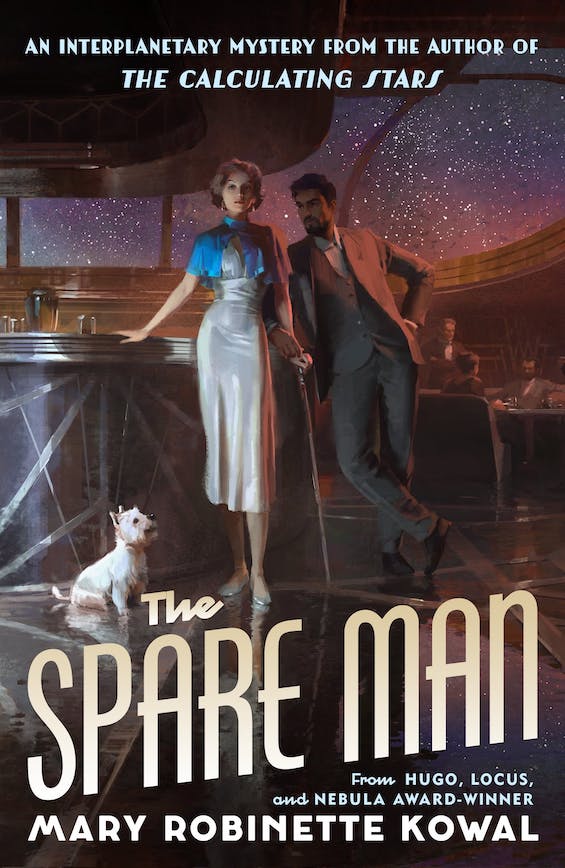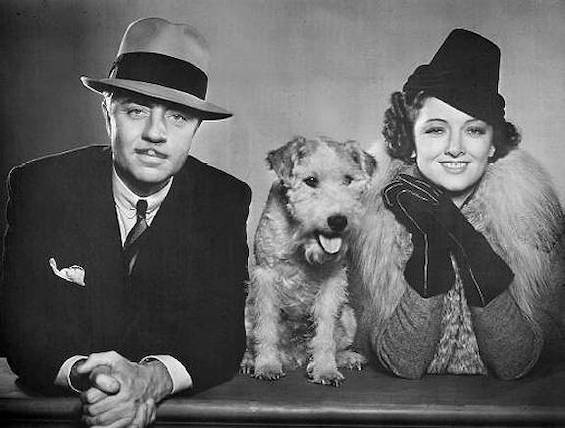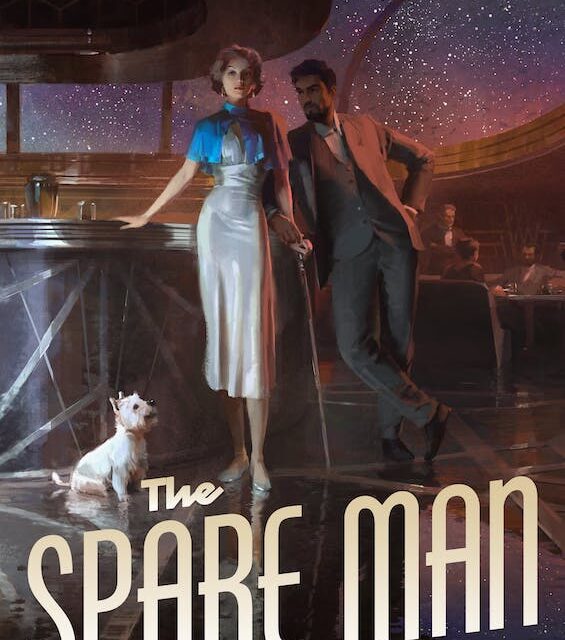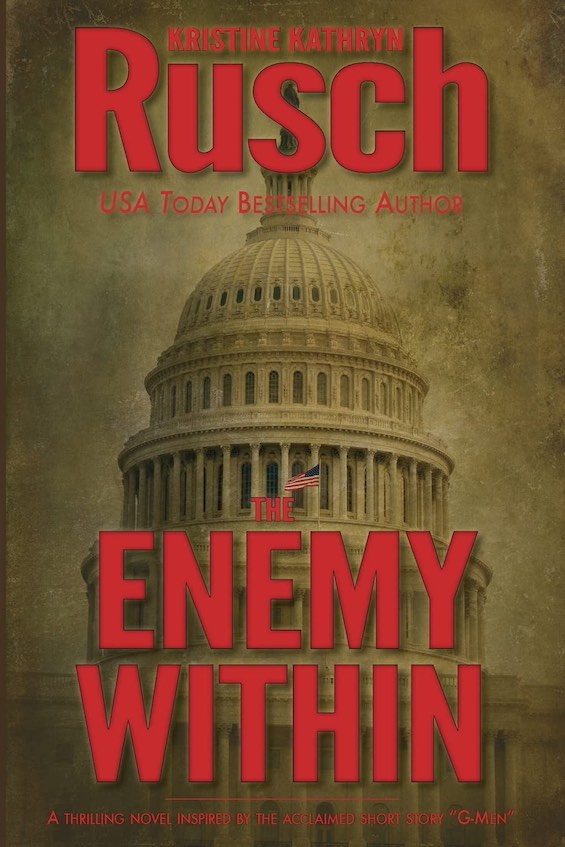
Dashiell Hammett’s murder mystery, The Thin Man, published in 1933, reached the silver screen the following year under the same title. The film was nominated for an Academy Award as Best Picture. It starred Hollywood luminaries William Powell and Myrna Loy as Nick and Nora Charles, a retired private detective and a rich socialite. But they shared top billing with a dog named Skippy (Asta in the film). Together, the alcoholic couple investigate a murder involving a wealthy family. Now, the award-winning science fiction author Mary Robinette Kowal reprises the theme in a new novel, The Spare Man. The story features a lookalike husband-and-wife team and their dog who become involved in a murder in space . . . on an interplanetary cruise ship.
Estimated reading time: 5 minutes
Murder in space . . . on a honeymoon cruise to Mars
It’s late in the 21st century. Tesla Crane is the heir to a vast high-tech fortune and herself a celebrated roboticist. She is famous throughout the solar system (in part because she suffered a near-fatal accident in a robotics experiment seven years earlier). Tesla can function only with the benefit of an embedded chip that allows her to dial the level of her pain up and down at will. Recently married to Shalmaneser (“Shal”) Steward, who retired as a private detective when they wed, she is deliriously happy to be on her honeymoon on an interplanetary cruise ship heading to Mars.
The pair are traveling incognito and having a grand time mixing cocktails for each other. But Tesla’s happiness doesn’t last long. Because when Shal witnesses a body lying in a corridor and goes running off to chase the presumed murderer, he is arrested for the murder. And Tesla finds it devilishly difficult to persuade the ship’s incompetent and hostile director of security that Shal is innocent.
The Spare Man by Mary Robinette Kowal (2022) 368 pages ★★★☆☆

First one victim, then more . . . and more
The victim was a wealthy woman named George Saikawa, who is connected to the billionaire Kuznetsova clan. Then it turns out that Saikawa wasn’t dead when she lay in the corridor. Someone killed her in the medical suite. But of course the security director doesn’t believe that. Despite Shal’s obvious innocence, he keeps Shal locked up and guarded by a huge security officer Tesla thinks of as “the wall.” And then more bodies turn up, one after another, as Tesla scrambles to investigate. And the security director persists in blaming the new deaths on Shal . . . or Tesla herself. It’s the stuff of a comic opera—but without the laughs.
The humor falls flat
In fact, unlike the classic film on which this novel is based, there are few laughs to be had anywhere. Dashiell Hammet’s banter no longer rings as clever as it must have done nearly ninety years ago. But Kowal’s falls flat. On occasion, it’s vaguely amusing, but almost never more than that. And there is no humor to be found in the characters’ constant drinking, which Kowal seems to imply. Alcoholism is not funny. On top of it all, the story doesn’t work well. The plot in the film is complicated, with a passel of likely suspects. But Kowal’s plot is endlessly convoluted and almost never easy to track. She should stick to hard science fiction, for which she is supremely talented.
About the author

Mary Robinette Kowal is a novelist and professional puppeteer. She won the John W. Campbell Award for her first science fiction story, published in 2008 and the Locus Award for a novelette the following year. The twelve novels she has written since 2010 have gained her both Hugo and Nebula Awards. Kowal was the President of the Science Fiction and Fantasy Writers of America from 2019-21. She is best known for the Lady Astronaut of Mars series of novels and novelettes.
Kowal was born in 1969 in Raleigh, North Carolina, and received a degree in Art History from East Carolina University. She now lives in Nashville with her husband.
For more reading
I’ve reviewed three of the author’s previous novels:
- The Calculating Stars – Lady Astronaut #1 (This novel shows just how good hard science fiction can be)
- The Fated Sky – Lady Astronaut #2 (An astonishingly good science fiction novel about the first manned mission to Mars)
- The Relentless Moon – Lady Astronaut #3 (The third Lady Astronaut novel doesn’t live up to the promise of the first two)
For Roger Ebert’s 2002 review of The Thin Man, click here.
For more good reading, check out:
- These novels won both Hugo and Nebula Awards
- The ultimate guide to the all-time best science fiction novels
- 10 top science fiction novels
- Good books about space travel, including both nonfiction and fiction
- Seven new science fiction authors worth reading
And you can always find my most popular reviews, and the most recent ones, plus a guide to this whole site, on the Home Page.


























